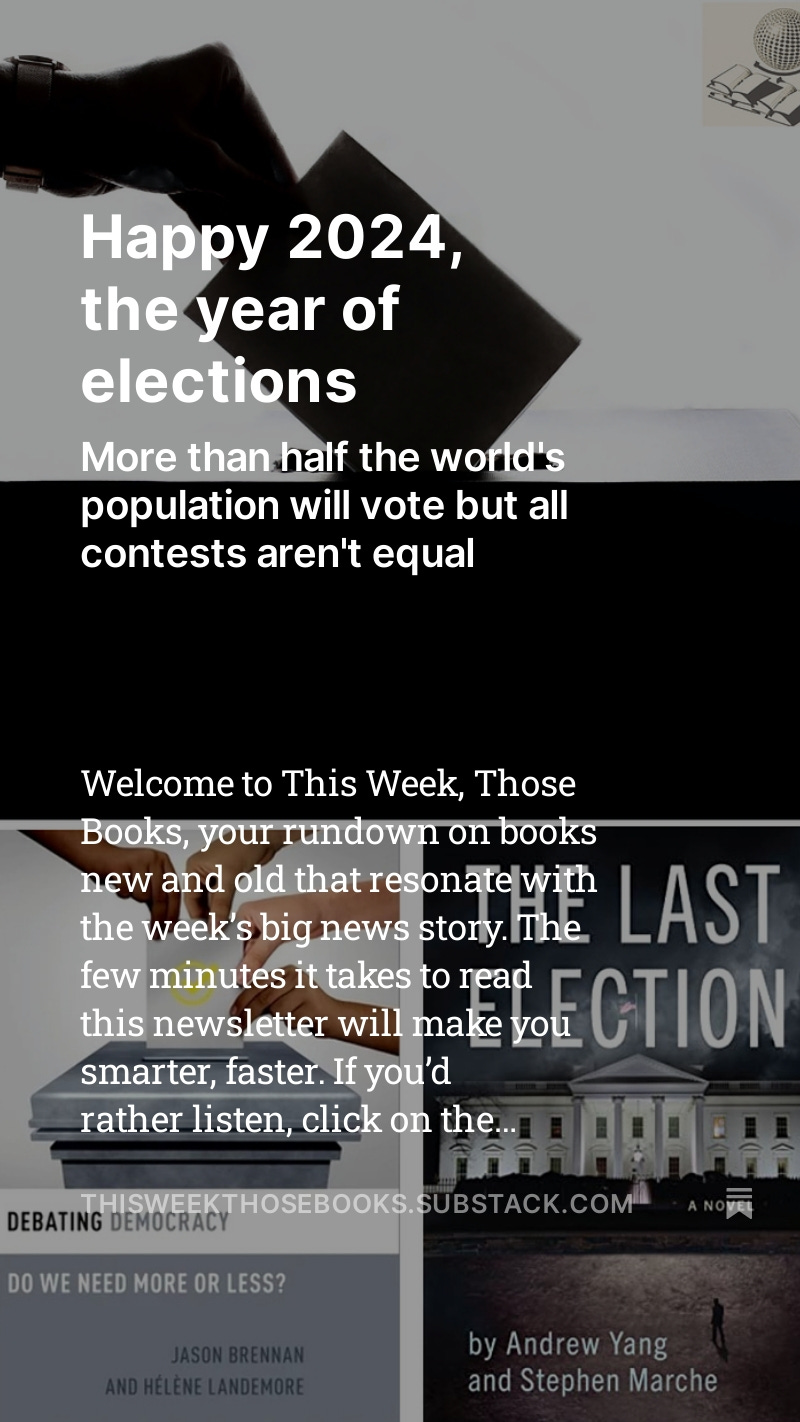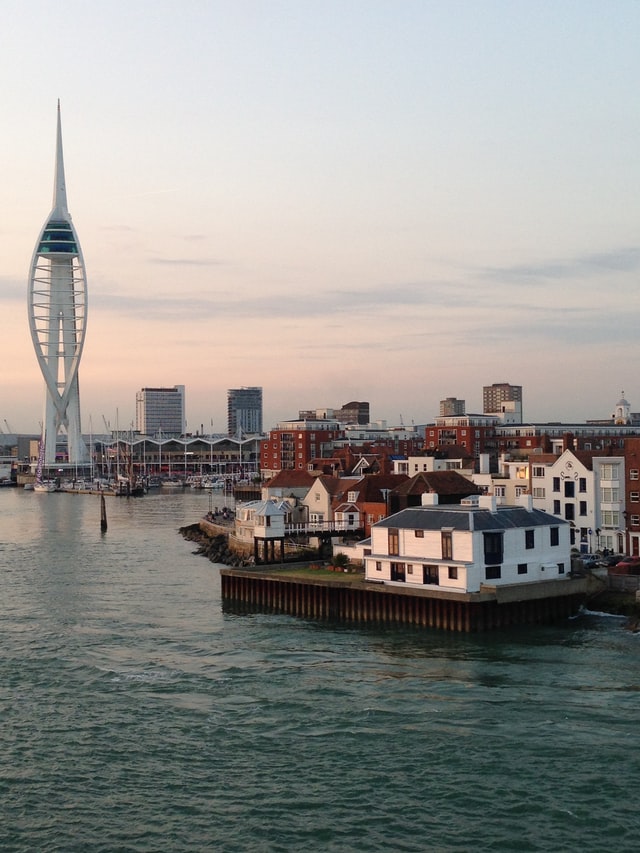Welcome to This Week, Those Books, your rundown on books new and old that resonate with the week’s big news story.
The few minutes it takes to read this newsletter will make you smarter, faster. If you’d rather listen, click on the audio button above for a human, not AI, voiceover by my close collaborator Michael. These book suggestions come with summary, quotes and a visceral response rating. Even if you don’t read the actual book, you’ll be able to discuss it. I never recommend a book I don’t like and I look through a number every week to find the few I share with you. Please spread the word. And find me on Twitter, LinkedIn, Facebook or YouTube.
Yours,

The Big Story:
This is a record year for elections. More than 4 billion people — half the world’s population — will vote in some 70 countries: Bangladesh, Pakistan, India, Indonesia, South Africa, Russia, the UK, US, to name just a few.
- But more elections don’t always mean more democracy. As 2023 ended, two elections — Egypt and the Democratic Republic of Congo — brought into focus the issue of democratic decline. This is when people vote but the verdict from the ballot box does not necessarily reflect the will of the people or address the greater common good.
- In Egypt, President Abdel Fattah al-Sisi won a third six-year term in a rushed election whose outcome was never in doubt.
- In mineral-rich Democratic Republic of Congo, sub-Saharan Africa’s largest country, incumbent President Félix Tshisekedi secured a second term by a landslide but the election was condemned as a “sham” by the opposition.
- Both elections, along with others on the 2024 global calendar, underline a basic reality: there is more to democracy than voting. International IDEA, the Stockholm-based intergovernmental democracy watchdog group says half the world’s countries are suffering democratic decline, which ranges from flawed elections to curtailed freedoms of expression and assembly.
The Backstory:
- Democratic decline is about the slow erosion of people’s rights.
- Today, it’s rare for a dictator to seize power by force. Instead, rigged elections can serve as a way to gain and maintain power. The methods used can be legislative and procedural changes that muzzle press and judiciary, make it harder for the opposition to campaign, for voters to cast their ballot and for challengers to seriously contest results.
- As political scientists Daniel Ziblatt and Steven Levitsky write in their book How Democracies Die: “People still vote. Elected autocrats maintain a veneer of democracy while eviscerating its substance. Many government efforts to subvert democracy are ‘legal,’ in the sense that they are approved by the legislature or accepted by the courts.”
This Week, Those Books:
- An accessible book on the purpose and exercise of democracy.
- A thriller that imagines the end point of American democracy — in 2024.






